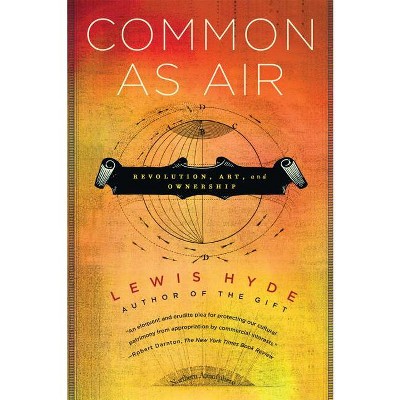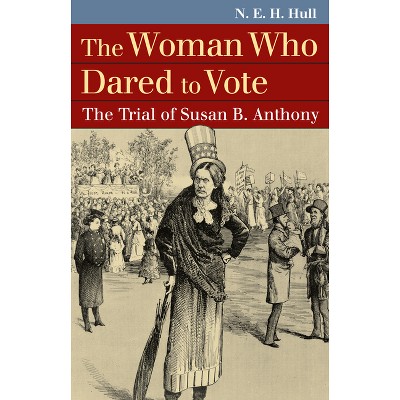Sponsored

Stand in the Fire - by William Crawford Woods (Paperback)
In Stock
Sponsored
About this item
Highlights
- From the first shot fired by his grandfather on a jungle trail in 1903 to the day his father captured plans for the Chinese invasion of South Korea, William Crawford Woods's family has fought in nearly every American war of the twentieth century.
- Author(s): William Crawford Woods
- 336 Pages
- Biography + Autobiography, Military
Description
About the Book
"From the first shot fired by his grandfather on a jungle trail in 1903 to the day his father captured plans for the Chinese invasion of South Korea, William Crawford Woods's family has found its way into several American wars. Drawing on letters, journals, and other artifacts and documents, Woods has retrieved their stories-accounts of his grandfather, Louis Crawford, who served in the Philippine War and in World War I; of the author's uncle, who rose from West Point cadet to staff command in the 11th Airborne and died in action in the World War II battle for Manila; and of the author's own father, who transformed himself from a sedentary lawyer into a soldier and a spy. To lighten the load, Woods occasionally calls on memories of his own army service, which he calls "brief, bloodless, and largely comic." The book is nonfiction fortified by dramatic scenes in which the author, drawing on his skills as a novelist, offers more than battlefield stories. He explores the wider impact of war, as we learn of his grandfather's struggles with his wife's patrician parents; his uncle's involvement with Cy Caldwell, a superstar aviator of the 1930s; and his father's swift ascent from civilian to counterspy"--Book Synopsis
From the first shot fired by his grandfather on a jungle trail in 1903 to the day his father captured plans for the Chinese invasion of South Korea, William Crawford Woods's family has fought in nearly every American war of the twentieth century. Drawing on his family's letters, journals, official records, and other artifacts found in his grandmother's attic, Woods has revived their stories--accounts of his grandfather, who served in the Philippine War and World War I; of his uncle, who rose from a West Point cadet to staff command in the 11th Airborne and died in action in the Battle of Manila in World War II; and of his own father, who transformed himself from a sedentary lawyer into a soldier and a spy. To lighten the dramatic and emotional load of his family's service, Woods occasionally calls on memories of his own time in the army, which he calls "brief, bloodless, and largely comic."
Woods fortifies this work of nonfiction with his skills as a novelist, crafting dramatic scenes and engaging dialog, offering far more than operational battlefield stories. He explores the wider impact of war, as we learn of his grandfather's struggles with his wife's patrician parents; his uncle's involvement with Cy Caldwell, a superstar aviator of the 1930s; and his father's swift ascent from civilian to counterspy.
Stand in the Fire is both an engrossing chronicle of a family who served in every American conflict from the Philippine War to the Cold War and a profoundly personal window into a family's patriotic inheritance. This intimately documented history vividly conveys successive generations' personal calls to serve, tells the stories of their paths to selfhood through military experience, and reflects on how they found fulfillment and adventure in their service, as well as evasion of the domestic scene.
Woods has skillfully created a memoir about the construction of memory forged in military service and American masculinity. Stand in the Fire is a powerful exploration of the love between fathers and sons and an attempt to honor family valor.
"I became aware of a debt to my ancestors I felt I could discharge by writing this book," Woods writes. "It was a way of keeping faith with those ancestors."
Review Quotes
"Stand in the Fire is masterfully written, gripping from beginning to end, and deeply moving. Since the book deals with family history, it could easily have become sentimental and self-indulgent. It never does, however, thanks to the verve and elegance of Woods's prose and his ability to present his grandfather, uncle, and father as real and engaging characters. In this regard, his decision to use fictional scenes in the service of nonfiction--a la Norman Mailer and Truman Capote, among others--proves an inspired choice and one that enlivens the manuscript in countless ways."--Steven Trout, author of The Vietnam Veterans Memorial at Angel Fire: War, Remembrance, and an American Tragedy
"William Woods's Stand in the Fire serves best as a magnificently written time capsule of a different America. In this historically based work of creative nonfiction, Woods tells the stories of his forefathers: men who served in times of war, their transformation in donning the uniform, and their incomplete return to civility--if they were fortunate enough to return at all. The reader will rightly marvel at this family's experiences. Ultimately, Woods subtly demands the reader consider whether the society that created millions of such families, and such men, still exists; or if it should at all."--Paul Darling, author of Taliban Safari: One Day in the Surkhagan Valley
"A most personable kind of history guided by the spirit of deep curiosity. Woods's voice is measured and engaging, full of sentiment without being sentimental, and aptly critical without being dismissive. We are doubly lucky that his family saved so much in attic trunks and that it fell into Woods's hands. His enviable talent brings these stories, and this slice of American history, to life."--Alex Vernon, author of most succinctly bred and Hemingway's Second War: Bearing Witness to the Spanish Civil War
Shipping details
Return details
Trending Non-Fiction
















